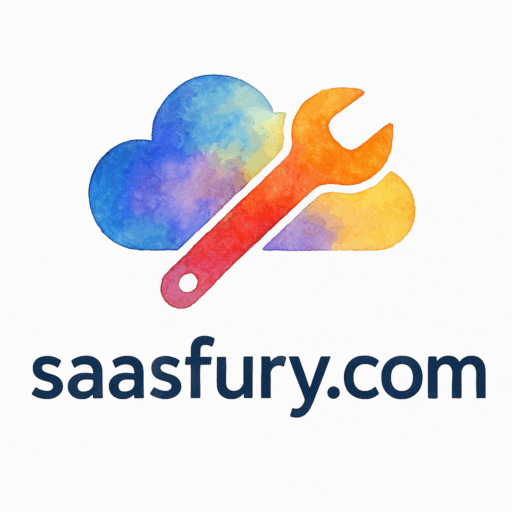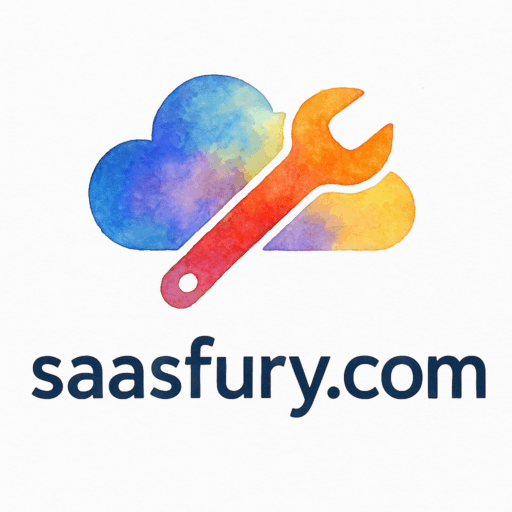Introduction
The mental health industry is undergoing a digital revolution, and at the center of it are SaaS tools for mental health professionals. These software-as-a-service platforms are reshaping how therapists, psychologists, and counselors manage their practices. From secure patient records to automated scheduling and online therapy sessions, SaaS tools are no longer optional—they’re essential.
If you’re wondering which tools are worth your time, you’re in the right place. In this guide, we’ll explore 8 SaaS tool recommendations for mental health professionals that will save time, reduce stress, and help you provide better care for your clients.
For broader context on how SaaS is impacting industries beyond healthcare, check out healthcare SaaS solutions or professional services software.
Why SaaS Tools Are Game-Changers for Mental Health Professionals
The Growing Role of Technology in Mental Health
Today’s clients expect convenience—whether it’s online booking, telehealth sessions, or digital intake forms. SaaS platforms provide cloud-based tools that make these expectations easy to meet. Just as online education tools empower learning, SaaS platforms empower therapists to deliver care without administrative bottlenecks.

Challenges Without SaaS Tools
Without SaaS solutions, mental health professionals often face:
- Lost time on manual paperwork
- Glitches with non-secure video tools
- Billing delays and insurance headaches
- Disorganized client records
It’s like trying to run a restaurant without a hospitality management system—chaotic and inefficient.
Key Features to Look for in Mental Health SaaS Tools
Security and HIPAA Compliance
Security is non-negotiable. Just as healthcare SaaS tools protect sensitive patient records, mental health SaaS platforms must be HIPAA-compliant to ensure privacy.
Scheduling and Patient Management
The right SaaS tool should offer easy online scheduling, reminders, and no-show tracking—similar to how retail software manages customer flow.
Teletherapy Integration
With clients spread across geographies, having built-in telehealth features is critical. Think of it like omnichannel retailing—meeting clients wherever they are.
Billing and Payment Solutions
Insurance billing and payment collection should be streamlined. Platforms like Headway do this effortlessly.
8 SaaS Tool Recommendations for Mental Health Professionals
1. TheraNest – All-in-One Practice Management
TheraNest is like the Swiss Army knife of mental health SaaS tools. It combines scheduling, billing, telehealth, and client notes into one intuitive platform.
Best for Small to Medium Practices
If you’re running a small or medium-sized practice, TheraNest eliminates the need for multiple subscriptions. It’s as versatile as business tools for consultants—giving you everything you need in one package.
2. SimplePractice – Streamlined Scheduling and Telehealth
SimplePractice is a crowd favorite among therapists because it makes scheduling, client intake, and telehealth seamless.
Why Mental Health Therapists Love It
Therapists appreciate features like customizable forms, secure messaging, and mobile access. It’s essentially the e-commerce of therapy—fast, convenient, and built for modern client expectations.
3. Zoom for Healthcare – Secure Teletherapy
Most people know Zoom, but the Healthcare version is tailored for therapists. It provides reliable video calls while meeting HIPAA standards.
HIPAA-Compliant Video Sessions
With secure encryption, it’s perfect for one-on-one or group therapy. Just as language coaches need a reliable communication tool, therapists require video platforms built for privacy.
4. Headway – Simplified Insurance and Billing
Insurance billing is a common frustration. Headway solves this by acting as a middleman between therapists and insurance companies.
Perfect for Insurance-Based Practices
If you spend hours on billing, Headway takes care of it. It’s as helpful as scheduling apps are to small businesses—automating a process that used to drain time and energy.
5. BetterHelp for Professionals – Expanding Your Reach
BetterHelp isn’t just a platform for clients—it also empowers therapists by providing access to a massive online client base.
Connecting Therapists with Online Clients
This SaaS tool is perfect if you want to extend your reach beyond local borders, much like how retail e-commerce platforms expand store visibility worldwide.
6. Talkspace for Therapists – Modern Digital Therapy Platform
Talkspace offers therapists access to clients through text, audio, and video-based sessions.
Scaling Mental Health Care
This SaaS tool provides flexibility and helps therapists reach more people. In many ways, it’s similar to how marketing agencies scale businesses by maximizing outreach.
7. TherapyNotes – Clinical Documentation Made Easy
TherapyNotes shines when it comes to secure, structured clinical documentation.
Streamlining Patient Records
It’s ideal for therapists who want to keep treatment plans and progress notes organized, similar to how patient record SaaS tools streamline hospital workflows.
8. CarePaths EHR – Affordable EHR for Therapists
CarePaths EHR offers affordability without compromising functionality. It provides essential features like client records, progress notes, and billing.
Designed for Private Practices
It’s perfect for solo therapists or small practices. Just like small business SaaS solutions, it balances affordability with powerful features.
How to Choose the Right SaaS Tool for Your Practice
Assessing Your Practice Needs
Do you need more help with scheduling, billing, or documentation? Understanding your priorities is step one.
Considering Budget and Scalability
Just like hospitality SaaS tools scale with hotels and restaurants, your chosen tool should grow with your practice.
Evaluating Customer Support
Reliable customer support can make learning new software painless.
Benefits of Using SaaS Tools for Mental Health Professionals
Improved Patient Experience
Clients love convenience—online booking, reminders, and teletherapy options.
Reduced Administrative Burden
Fewer manual tasks mean more time for sessions.
Increased Accessibility
Just as online education SaaS makes learning available globally, SaaS platforms make therapy accessible in underserved areas.
Data-Driven Insights
Track progress and make evidence-based treatment decisions.
Common Mistakes to Avoid When Using SaaS Tools
Ignoring Security Regulations
Not all SaaS platforms are HIPAA compliant.
Overloading with Too Many Tools
Focus on the essentials—don’t overwhelm your staff with multiple platforms.
Not Training Staff Properly
Invest in proper onboarding and training to maximize efficiency.
Future of SaaS in Mental Health
AI and Automation
Expect AI-driven scheduling and automated note-taking, similar to AI-powered business tools.
Virtual Reality Therapy
Emerging VR tools are showing promise for PTSD and anxiety therapy.
Expanding Global Access
SaaS will continue breaking down borders—just as retail SaaS platforms have expanded shopping worldwide.
Conclusion
The rise of SaaS in mental health is not just a trend—it’s the future. From TheraNest to CarePaths EHR, the right tools can streamline workflows, improve patient care, and reduce the stress of administrative tasks.
By selecting tools that are HIPAA-compliant, scalable, and tailored to your needs, you’ll not only run a more efficient practice but also deliver a higher quality of care.
Want to explore more SaaS categories? Check out SaaS Fury’s SaaS recommendations for deeper insights across industries.
FAQs
1. What are SaaS tools for mental health professionals?
They are cloud-based platforms that help therapists manage telehealth, billing, scheduling, and documentation.
2. Are SaaS tools HIPAA compliant?
Only some. Always verify compliance before using one for client records.
3. Can SaaS tools replace in-person therapy?
No, but they enhance accessibility and convenience.
4. Which SaaS tool is best for small practices?
TheraNest and CarePaths EHR are excellent budget-friendly options.
5. Do SaaS tools help with insurance billing?
Yes—Headway specializes in simplifying insurance processes.
6. What’s the difference between SimplePractice and TherapyNotes?
SimplePractice excels in scheduling and telehealth, while TherapyNotes focuses on clinical documentation.
7. What is the future of SaaS in mental health?
Expect AI-driven tools, virtual reality therapy, and expanded global telehealth.

